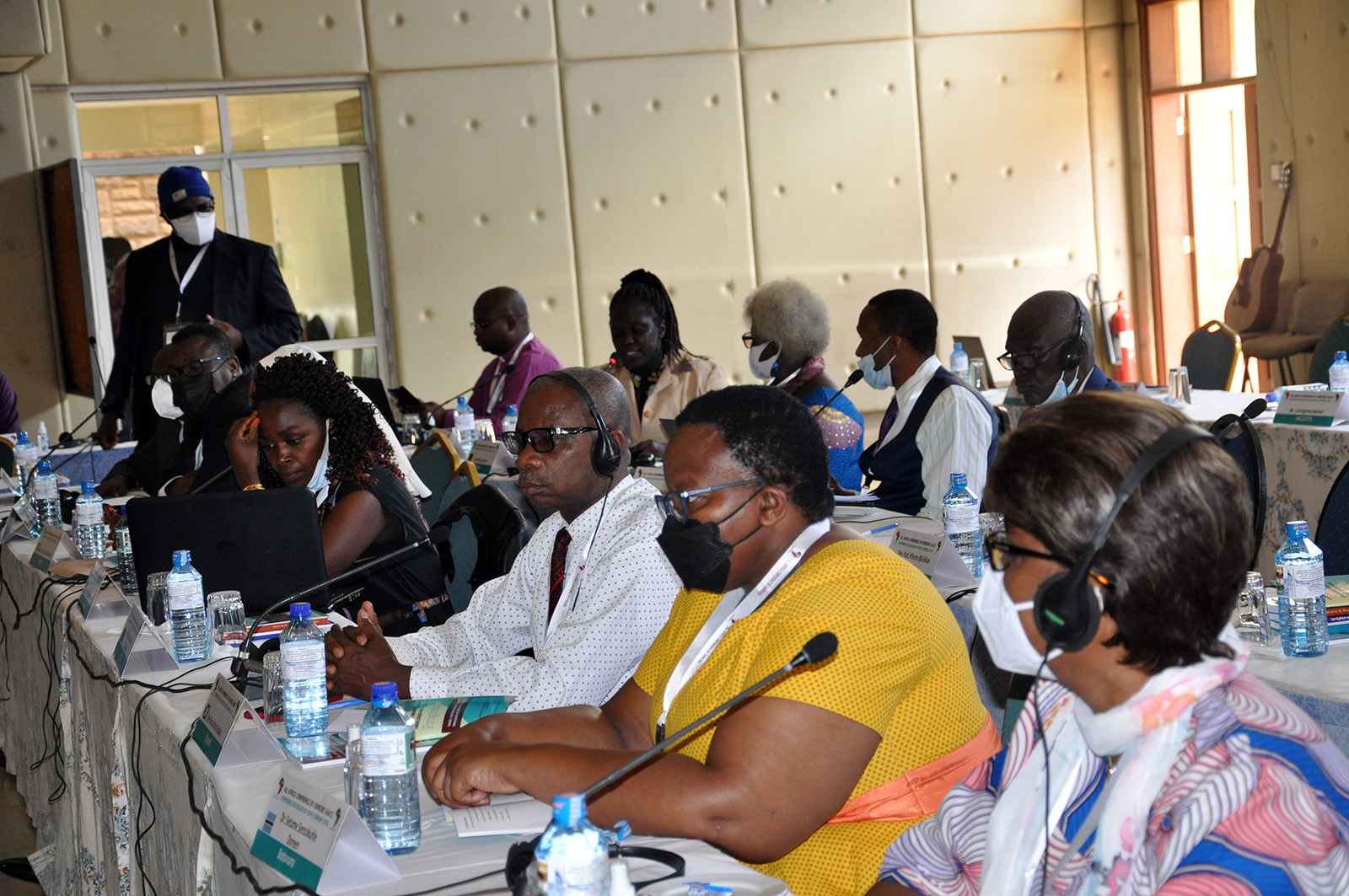Religious observers say many of the worst abuses of theology come in faith healing.
The Rev. Simangaliso Kumalo, an associate professor of religion and governance at the University of KwaZulu-Natal-Pietermaritzburg, warns that the popular belief that Jesus cures every sickness poses challenges for managing epidemics, pointing to Pentecostal churches that have, he said, spiritualized COVID-19.
“For them, the corona is not a mere virus,” Kumalo told the conference. Pastors preach that, “because members of Pentecostal churches are children of God, the virus would not infect them, or if it does, they would be healed by Jesus, the physician.”
Participants at the 3rd Symposium on Misleading Theologies sit in a session on Nov. 22, 2021, in Nairobi, Kenya. RNS photo by Fredrick Nzwili
He highlighted conspiracy theories that say viruses such as COVID-19 are God’s punishment to disobedient humanity.
Monica Nambaba, an official at the Africa Christian Health Associations Platform, said spurious teachings about health have hurt Africans in the past. “Some people with conditions such as HIV have died after religious leaders told them to stop medication after attending healing prayers,” she said.
Pastors should instead be conscious of their power to sway people’s attitudes about health measures. “If the religious leaders can use their platforms to correct this, it will go a long way in helping the communities,” Nambaba said.
According to Veronica Ngum Ndi, a disability and development professional from Cameroon, people with disabilities are particularly vulnerable to faith healing attempts. Telling a person with a permanent disability that God will one day allow them to walk again is destructive, she said, and commanding them to drop their crutches because they have been cured, as some pastors do, can only worsen their problems. “Some have been injured badly in the process,” said Ndi.
At the same time, some of the church leaders and theologians at the symposium advocated for a reconsideration of African traditional healing practices, many of which have been suppressed or lost in the continent’s missionary era.
“We are referring to those aspects that make traditional healing practices beneficial. These aspects must be recovered because they are not incompatible with the gospel,” said the Rev. Herve Djilo Kuate, a pastor in the Evangelical Church of Cameroon.
This article originally appeared here.


